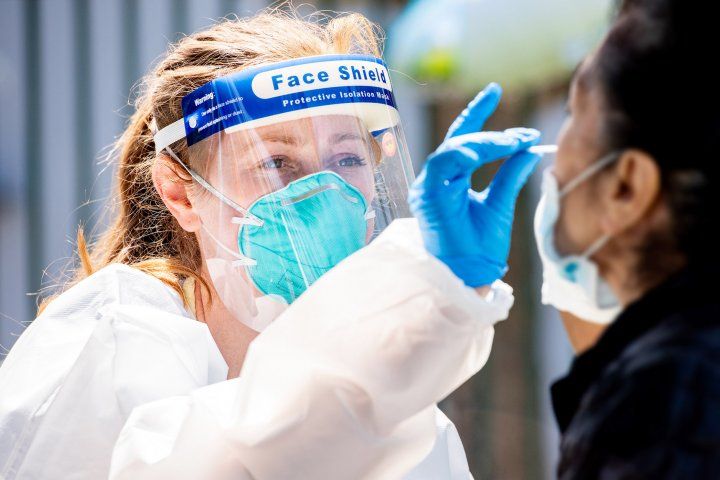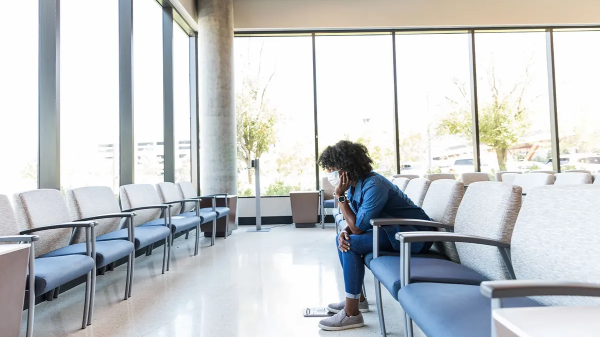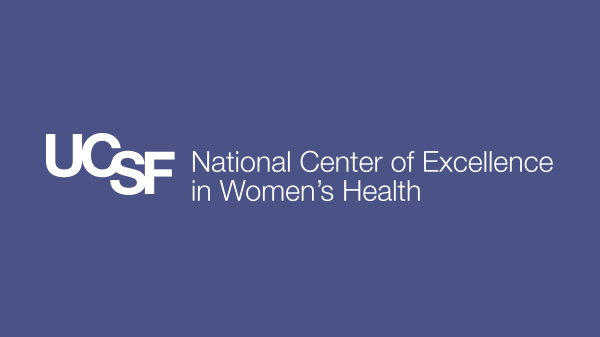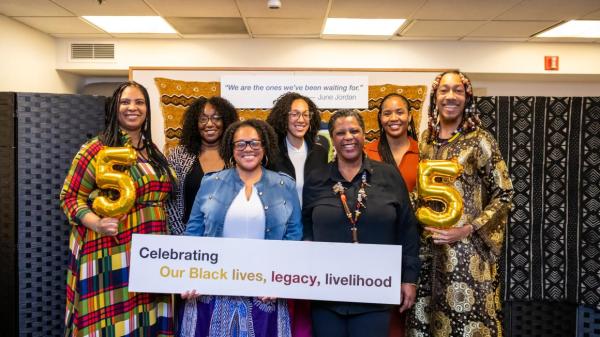‘Low-Barrier’ Model for State-Wide Disease Monitoring in Vulnerable Populations to Be Tested at Mission District Hub

A testing program in April identified the outsized exposure risk facing Latinx essential workers and their families in the Mission.
In San Francisco’s Mission District, UC San Francisco infectious disease specialists and community partners are launching what is believed to be a first-in-the-nation pilot program to provide low-barrier COVID-19 testing – free, simple, and convenient – at a central transit hub. The project aims to enhance the ability of San Francisco public health officials to detect and contain the spread of the disease among the heavily impacted Latinx community and essential workers in the Mission.
The project is led by Unidos En Salud – a collaboration between UCSF and the Latino Task Force on COVID-19 – in partnership with the San Francisco Bay Area Rapid Transit (BART) District, the office of San Francisco Supervisor Hillary Ronen, the San Francisco Department of Public Health (SFDPH), and the Chan Zuckerberg BioHub. Along with recent initiatives to provide testing in the town of Bolinas and for housed and unhoused people in the Bayview, Sunnydale and Visitacion Valley neighborhoods in southeast San Francisco, the collaboration is part of UCSF’s tightly coordinated work with the City and County of San Francisco, the state of California, and affected communities to respond to the public health crisis presented by COVID-19.
In a late April study, Unidos En Salud identified the outsized exposure risk facing Latinx essential workers and their families in the Mission, driven in part by inequalities in economic and housing security. Despite San Francisco’s efforts to provide free testing to all essential workers, this same high-risk population continues to experience significant barriers to testing, including inability to take time off work to get tested, lack of access to medical systems, and fear of potential consequences of a positive test, including the need to go into isolation, potentially putting income and job security at risk.
“In order to reduce community transmission of COVID-19 to a level where we can start opening up society again, there is an urgent need to deploy testing to persons most at-risk for infection,” said Diane Havlir, MD, chief of the UCSF Division of HIV, Infectious Diseases and Global Medicine and director of Ward 86 at Zuckerberg San Francisco General Hospital and Trauma Center (ZSFG). “With the idea that public transit is heavily utilized by frontline workers, we’ve partnered with BART to test the feasibility of setting up disease monitoring at a central transit hub in the Mission. If successful, we hope that this can become a model for low-barrier disease monitoring for Latinx and other at-risk communities across California.”
"Bringing more testing to the Mission and making it so accessible is very exciting to me,” said Susana Rojas, executive director of Calle 24 Latino Cultural District and member of the Latino Task Force. “As the test results continue to show, essential workers and Latinos are being affected the most by COVID-19. This kind of testing can potentially reach the essential worker population that is most in need, giving us an opportunity to identify, isolate and help resource those who test positive, hopefully helping reduce the rate of infection."
The pilot testing initiative will occur at the central 24th Street and Mission Plaza transit hub on Wednesdays and Fridays for three weeks, beginning on July 29. Testing will be available during convenient hours for workers: from 7 am to 6 pm. The testing program will include simple on-site registration and PCR-based testing, with the option for participants to self-administer the tests or have them administered by a laboratory technician. The initiative will include a fast-track lane for people who work at local Mission businesses as well as BART employees.
The program will replicate the community-based “Test to Care” model that Unidos En Salud developed in its earlier Mission District study. Those with positive PCR results will be quickly notified by phone by the Unidos En Salud team, while those with negative results will be able to view their results online. Those who test positive will be provided with services during isolation and quarantine, including food, cleaning supplies, social support, and linkage to care and social protection programs such as San Francisco’s “Right to Recover” law, enacted in May, which guarantees two weeks of replacement income to workers who must self-isolate due to COVID-19 infection.
The study will measure prevalence and risk factors for SARS-CoV-2 infection, including surveying participants on factors such as public transportation use before and during the COVID-19 pandemic. In collaboration with the CZBiohub, the researchers will sequence viral samples to characterize circulating SARS-CoV-2 viral strains in San Francisco to better understand how strains are circulating in the Bay Area.
“We are part of the fabric of each community we serve,” said BART Director Bevan Dufty. “That’s why it’s essential we now partner with community leaders and UCSF to do everything we can to address the COVID-19 challenge disproportionately affecting our Mission community.”
“We are grateful to have another opportunity to partner with UCSF on this important study that focuses on our Latinx community members and essential workers in the Mission,” said San Francisco Director of Health Grant Colfax, MD, MPH. “This partnership is critical in understanding the virus, supporting those most impacted and identifying resources needed to combat the virus. Together, we hope this study will better inform all of us how to effectively reach our communities most at risk and further slow the spread of the virus.”
"In order for us to tackle this problem head on we need to get creative in how we do testing and where we focus it. We need to bring the testing to the people,” said Jon Jacobo, chair of the Latino Task Force Health Committee. “As we know, the Latino community has been hit hard and we need to ensure that as a City we are lowering the barriers to testing while increasing the resources for those who need support most. We hope that this approach can help protect our community, our beloved city, and the Bay Area as a whole."
The Unidos En Salud initiative is part of the recently launched UCSF COVID-19 Community Public Health Initiative. Led by Kirsten Bibbins-Domingo, PhD, MD, MAS, vice dean for population health and health equity at the UCSF School of Medicine, the initiative focuses on communities and populations disproportionately affected by the virus, and on building durable community partnerships.
In addition to COVID-19 testing, UCSF’s closely coordinated response to COVID-19 with the City and County of San Francisco, other Bay Area communities, and the state of California has included providing forecasts about the pandemic across the state and advice and counsel on pandemic response by UCSF epidemiologists; implementing a statewide contact tracing program in collaboration with the California Department of Health; providing $1 million and clinical expertise for the City to open a COVID-19 unit at Saint Francis Memorial Hospital; and opening a new, 53-bed respiratory isolation unit at UCSF Health’s Mount Zion hospital to expand the city’s overall hospital capacity for potential future surges, while offering dedicated space for current patients.
The proactive effort builds on UCSF’s long-standing commitment to addressing public health crises, which dates back to the University's founding in the mid-19th century, and includes such issues as homelessness, and such diseases as cholera, tuberculosis and HIV/AIDS.
About UCSF: The University of California, San Francisco (UCSF) is exclusively focused on the health sciences and is dedicated to promoting health worldwide through advanced biomedical research, graduate-level education in the life sciences and health professions, and excellence in patient care. It includes UCSF Health, which comprises three top-ranked hospitals, as well as affiliations throughout the Bay Area.
About LTF: The Latino Task Force – COVID-19 (LTF) was formed within days of San Francisco's Shelter in Place order to connect Mission District community-based organizations with city government resources. LTF is now a city-wide collective that has grown to 30+ community-based organizations with over 13 active committees and involves various officials and representatives from local, state, and federal government and an international consulate.
About BART: Bay Area Rapid Transit (BART) connects the San Francisco Peninsula with Berkeley, Oakland, Fremont, Walnut Creek, Dublin/Pleasanton and other cities in the East Bay. For more than 45 years BART has provided fast, reliable transportation to downtown offices, shopping centers, tourist attractions, entertainment venues, universities and other destinations for Bay Area residents and visitors alike.
About SF Department of Public Health: The mission of the San Francisco Department of Public Health (SFDPH) is to protect and promote the health of all San Franciscans. SFDPH strives to achieve its mission through the work of two main Divisions – the San Francisco Health Network and the Population Health Division. The San Francisco Health Network is the City's only complete system of care and has locations throughout the City, including Zuckerberg San Francisco General Hospital and Trauma Center, Laguna Honda Hospital and Rehabilitation Center, and more than 15 primary care health centers. With a broad community focus, the ultimate goal of the Population Health Division is to ensure that San Franciscans have optimal health and wellness at every stage of life. To achieve this, the Division is comprised of branches dedicated to core public health services, such as health protection and promotion, disease and injury prevention, disaster preparedness and response, and environmental health services.




